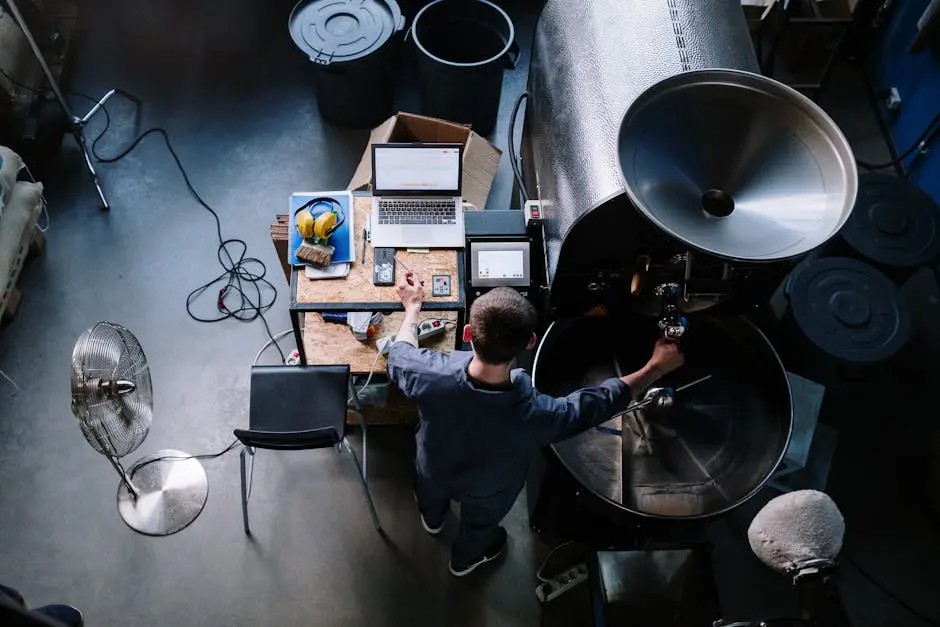
How Do Coffee Roasters in Nevada Ensure Sustainability?
Sustainability is more than just a buzzword for coffee roasters in Nevada; it’s a commitment to eco-friendly practices and a healthier planet. In this blog, we’ll explore the innovative methods these roasters are implementing to ensure a sustainable coffee culture.
Understanding Sustainable Sourcing
Coffee roasters in Nevada prioritize sourcing beans from farms that practice sustainable methods, ensuring fair wages for farmers and preserving biodiversity.
Many roasters have established direct trade relationships, allowing them to pay farmers more than the standard market price. This relationship not only ensures quality beans but also supports the communities that grow them.
By choosing organic and shade-grown coffee, Nevada roasters help protect the rainforest and its diverse ecosystem. This practice promotes not just better coffee but also a healthier planet.
Sourcing locally is another strategy employed by many coffee roasters in Nevada. By collaborating with nearby farms, they reduce transportation emissions and support local economies, reflecting a deep-rooted commitment to sustainability.
Eco-Friendly Roasting Techniques
Roasting processes are designed to minimize energy consumption and emissions, often utilizing renewable energy sources.
Several Nevada coffee roasters have invested in energy-efficient roasters that consume less power while delivering high-quality coffee. These advanced technologies not only save energy but also enhance the flavor profile of the beans.
Innovative cooling methods post-roasting contribute to sustainability as well. By using water-recycling systems and air-cooling techniques, roasters dramatically reduce waste and lessen their carbon footprint.
Moreover, many roasters have adopted practices like batch roasting to optimize energy use. By roasting multiple batches in one go, they ensure that energy isn’t wasted on underutilized equipment.
Waste Reduction Strategies
Many Nevada coffee roasters implement waste reduction practices such as composting coffee grounds or reusing packaging materials to lessen their environmental impact.
Some roasters have partnered with local farms to provide spent coffee grounds, which are rich in nutrients and make excellent fertilizer. This not only cuts down on waste but also supports local agriculture.
Others have restructured their packaging processes, opting for biodegradable or recyclable materials instead of plastic. These efforts aim to reduce landfill waste and make a positive impact on the environment.
Additionally, many Nevada coffee roasters are committed to minimizing single-use items in their cafés, encouraging customers to bring their own cups and offering discounts to those who do. This fosters a culture of sustainability within the community.
Community Engagement and Education
Roasters engage with local communities to educate consumers about sustainable practices and promote an overall culture of environmental responsibility.
Workshops and tasting events offered by Nevada’s coffee roasters are more than just opportunities to enjoy great coffee; they provide valuable insights into the sustainability journey of each cup. These initiatives help consumers understand their role in the sustainability movement.
Collaborations with schools and organizations are also vital. Many roasters organize programs to teach young people about the importance of sustainable agriculture and ecological stewardship.
Through community partnerships, coffee roasters are not merely business entities but become advocates for environmental awareness. Their outreach efforts exemplify how local businesses can inspire broader societal change.
In Summary
As we’ve seen, Nevada’s coffee roasters are not just focused on brewing the perfect cup; they’re dedicated to preserving the environment. From sourcing ethically to innovative waste reduction and community engagement, their practices provide a model for sustainability in the coffee industry. Every sip of your coffee can contribute to a brighter, greener future.

